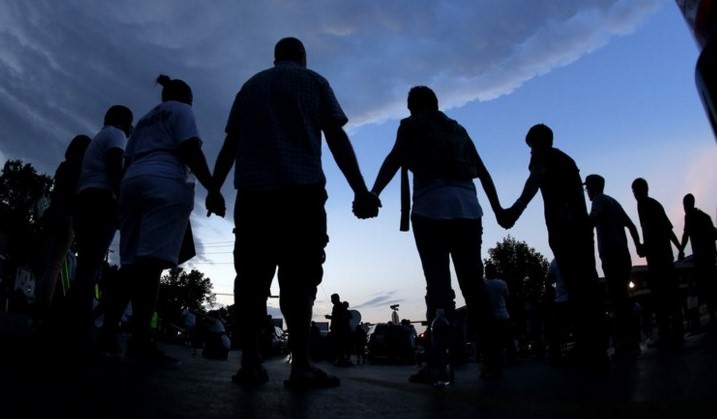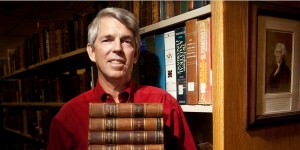


Perhaps no nation is more familiar with or has been more reliant on prayer than America. It has been inseparable from our national identity.
Although formal prayer events occurred in 1541 at Palo Duro Canyon in Texas, in 1564 at St. Augustine, Florida, in 1598 at El Paso, Texas, and in 1607 at Cape Henry, Virginia — it is from the pilgrims that two of America’s most common prayer traditions stem.
After a brutal winter in which nearly half the pilgrims died, they experienced a prosperous fall and therefore declared a three-day feast in December 1621 to thank God and to celebrate with their Indian friends. Ninety Indians joined the 50 pilgrims for three days of feasting, athletic competitions and prayer — the origin of the federal Thanksgiving holiday Americans now celebrate each fall.
But in 1623 the pilgrims experienced a severe spring drought which they knew could result in another winter of death and starvation. Gov. William Bradford called for a time of prayer and fasting. To the great amazement of the Indians who witnessed the scene, after nine straight hours of prayer, clouds appeared in the empty sky and a gentle, steady rain began to fall, thus producing abundant spring crops and a bountiful, fall harvest.
The surrounding New England colonies gradually adopted these pilgrim practices and developed the tradition of calling for a day of prayer and fasting in the spring, and a day of prayer and thanksgiving in the fall.
Prayer continued to be central to the formation of the new nation. When the first Continental Congress gathered in Philadelphia in September 1774, luminaries such as George Washington, Samuel Adams, Patrick Henry and the others began with an extended time of prayer which delegate Silas Deane described as “worth riding one hundred miles to hear,” with John Adams reporting, “It has had an excellent effect upon everybody here.”
America continued its reliance on prayer throughout the Revolution, with the Continental Congress calling the nation to 15 separate days of prayer. The resulting frequent occasions of Divine intervention were so obvious that George Washington told General Thomas Nelson:
“The hand of Providence has been so conspicuous in all this that He must be worse than an infidel that lacks faith, and more than wicked, that has not gratitude enough to acknowledge his obligations.”
According to Washington, the hand of God was so apparent that anyone who did not feel an obligation to thank God for what He had done for America was simply wicked.
Between 1620 and 1815, colonial, state and federal governments issued more than 1,400 official calls to prayer. (Scores of those original prayer proclamations can be seen on WallBuilders.com.) Thousands more official calls to prayer have been issued since 1815, often by our national leaders.
For example, President Franklin D. Roosevelt led the entire nation in a six-and-a-half minute prayer as Allied troops stormed the beaches on D-Day. Gens. Dwight D. Eisenhower and George S. Patton also offered their own prayers. In fact, during the Battle of the Bulge, Patton declared that “We’ve got to get not only the chaplains but every man in the Third Army to pray,” and to that end, he and his chaplain issued a prayer card to every one of the 250,000 soldiers under his command. History records that the battle then changed from an apparent German victory to a resounding German defeat.
And when Eisenhower was elected president of the United States, he acknowledged that “I was seeking a way to point out that we were getting too secular.” He therefore wrote his own prayer that he publicly prayed at his own inauguration.
There are hundreds more examples, and as President Reagan affirmed:
“Prayer has sustained our people in crisis, strengthened us in times of challenge, and guided us through our daily lives since the first settlers came to this continent … The most sublime picture in American history is of George Washington on his knees in the snow at Valley Forge. That image personifies a people who know that it’s not enough to depend on our own courage and goodness; we must also seek help from God, our Father and Preserver.”
 David Barton — Founder of WallBuilders.com, preserving “America’s forgotten history and heroes, with an emphasis on moral, religious and constitutional heritage,” is an authority on the role of faith in American history. He is co-author of the book “U-Turn” with George Barna.
David Barton — Founder of WallBuilders.com, preserving “America’s forgotten history and heroes, with an emphasis on moral, religious and constitutional heritage,” is an authority on the role of faith in American history. He is co-author of the book “U-Turn” with George Barna.
Get all of the latest headlines and news as it happens.
Thank for visiting nationalblackroberegiment.com. In efforts to comply with the new GDPR regulations we have created a Privacy Center for your convenience.